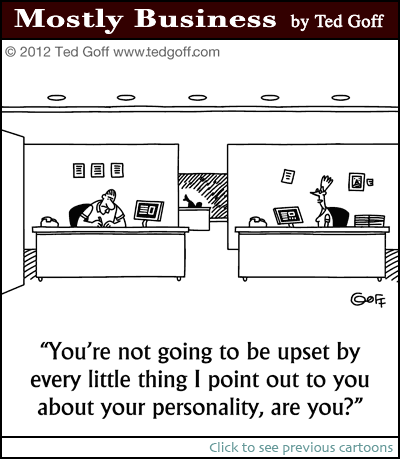Between 1924 and 1927 a scientist, Elton Mayo, conducted experiments at the Western Electric Hawthorne Works in Chicago on the effect of light on productivity. The experiments showed no clear connection between productivity and the amount of light at the workplace. However Mayo wondered what kind of changes at the workplace would indeed influence the production.
In further studies at the Hawthorne factory between 1927 and 1932 he found out an amazing thing! Basically he found out that workers acted according to sentiments and emotion! He said that if management would treat the employees with respect and give them the attention at the workplace they needed, then the workers would be willing to work harder for the employer.
The Hawthorne Effect = the more you show interest in people, the more you show
 you are concerned, the better the job performance of the employees.
you are concerned, the better the job performance of the employees.
An interesting side-effect of this theory is the duality with the concept of 'training'. Training educates employees, but the mere act of gaining more knowledge doesn't necessarily mean that the employee will be motivated to perform better. An employee will be motivated to perform better because he feels supported by his management. Because they take care of his training, by paying for it, by organizing it. The motivation is independent of the knowledge an employee may have gained from training. That also is the Hawthorne Effect.
It is said that at least 50 % of a successful training should be attributed to the Hawthorne Effect.
What can we learn here?
1. The need for recognition, security and sense of belonging is more important for the employees' morale and productivity, than the physical working place conditions.
2. An employee is somebody whose attitudes and effectiveness are conditioned by social demands from both inside and outside the working place.
3. 'Somebody Upstairs Cares' syndrome: as a manager, show the people you care, and act upon it (it is not enough to just be nice to employees)
Elto
 n Mayo (1880-1949)
n Mayo (1880-1949)The Human Problems of an Industrial Civilization (1933)
The Social Problems of an Industrial Civilization (1945)
The Political Problems of an Industrial Civilization (1947)





















